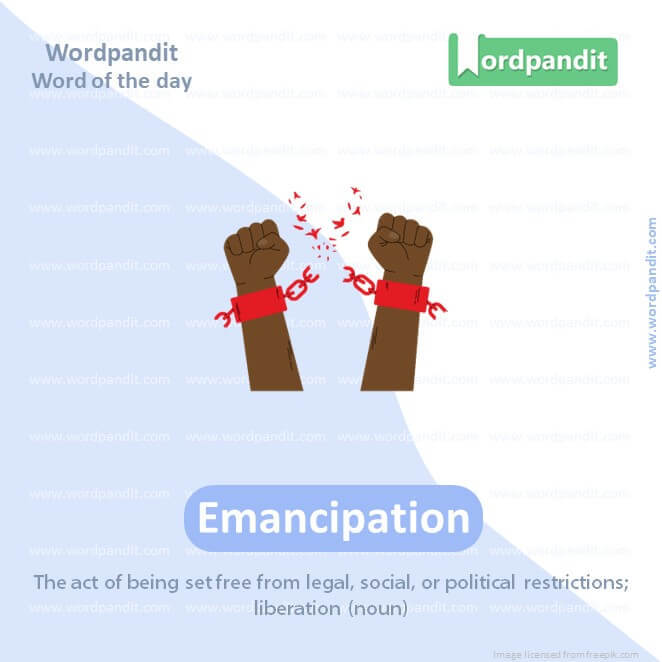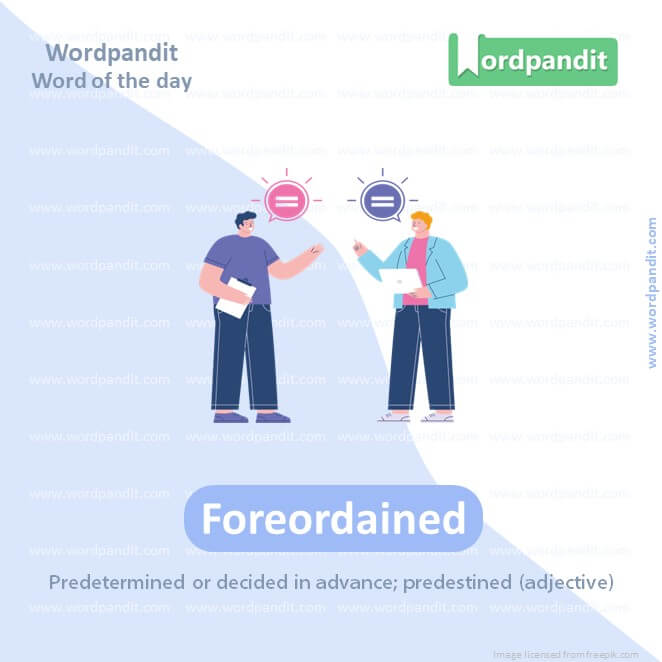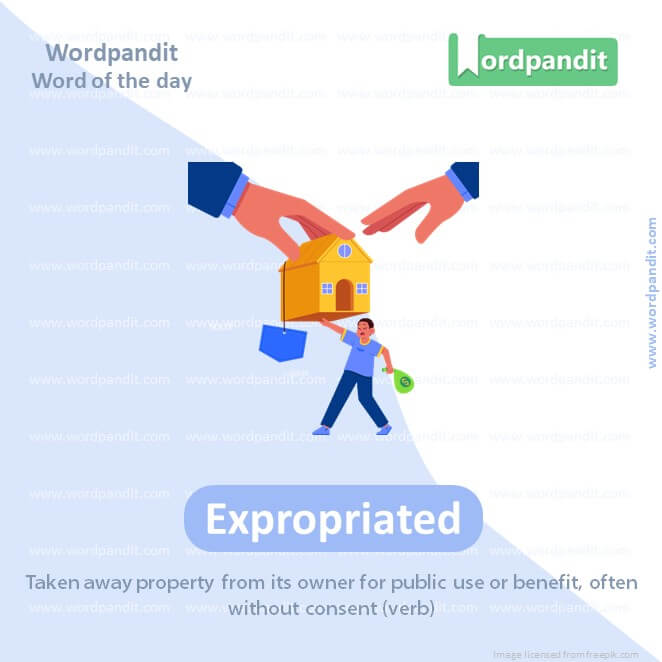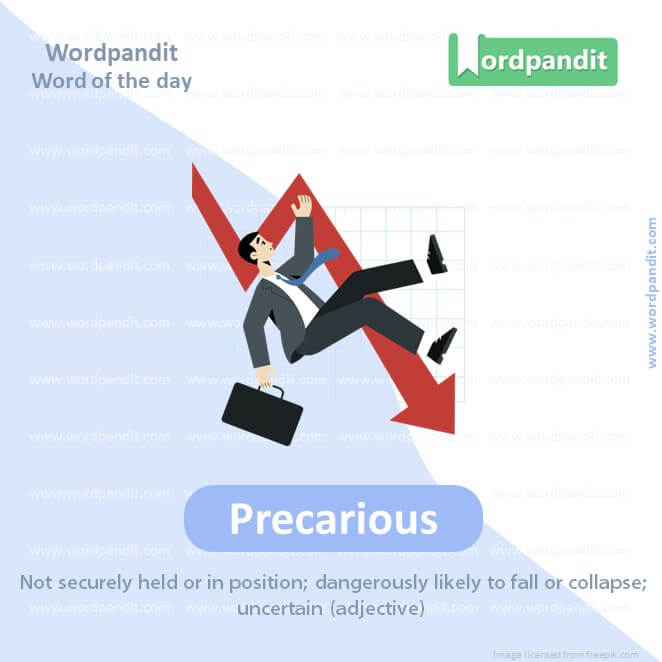Daily Vocabulary Words: List of Daily Used Words in Leading International Newspapers
Hi there. Welcome to this special section @ Wordpandit.
Our endeavour here is very simple: to highlight important daily vocabulary words, which you would come across in leading newspapers in the country. We have included the following newspapers in our selection:
• The New York Times
• The Washington Post
• Scientific American
• BBC
• The Guardian
• Psychology Today
• Wall Street Journal
• The Economist
We are putting in extensive work for developing your vocabulary. All you have got to do is be regular with this section and check out this post on a daily basis. This is your repository of words that are commonly used and essentially, we are posting a list of daily used words. Hence, this has significant practical application as it teaches you words that are used commonly in leading publications mentioned above.
Visit the website daily to learn words from leading international newspapers.

WORD-1: Emancipation
CONTEXT: More widespread education, women’s emancipation, and population ageing have led to labor shortages.
SOURCE: Guardian
EXPLANATORY PARAGRAPH: Imagine being told that you can now make your own decisions and don’t have to follow someone else’s rules all the time. Emancipation is like that. It’s when someone is set free from rules or control, especially used for when slaves were freed or when young people are legally allowed to make their own decisions.
MEANING: The act of being set free from legal, social, or political restrictions; liberation (noun).
PRONUNCIATION: e-man-si-PAY-shun
SYNONYMS: Liberation, Freedom, Release, Deliverance, Independence.
USAGE EXAMPLES:
1. The Emancipation Proclamation was an important moment in history.
2. Her journey towards personal emancipation was inspiring.
3. Emancipation from traditional ideas allowed for innovation.
4. The emancipation of the serfs changed the social structure.

WORD-2: Enthusiasm
CONTEXT: As you can imagine, that idea has been met with great enthusiasm on the Republican side.
SOURCE: Washington Post
EXPLANATORY PARAGRAPH: Think about how you feel when you’re going to your favorite place, like an amusement park. You’re really excited and happy. Enthusiasm is that feeling of being very excited and interested in something.
MEANING: Great excitement and interest in something (noun).
PRONUNCIATION: en-THOO-zee-az-um
SYNONYMS: Excitement, Eagerness, Zeal, Passion, Ardor.
USAGE EXAMPLES:
1. She showed great enthusiasm for the new project.
2. His enthusiasm was contagious.
3. They started their venture full of enthusiasm.
4. He spoke about his hobby with great enthusiasm.

WORD-3: Foreordained
CONTEXT: There was nothing inevitable or foreordained about them.
SOURCE: New York Times
EXPLANATORY PARAGRAPH: Imagine if someone told you that everything that happens in your life is like a story that has already been written, and you’re just living it out. Foreordained is a bit like that. It means something is decided or determined beforehand, like it’s part of a plan that was made a long time ago.
MEANING: Predetermined or decided in advance; predestined (adjective).
PRONUNCIATION: for-OR-daynd
SYNONYMS: Predestined, Preordained, Destined, Fated, Decreed.
USAGE EXAMPLES:
1. They believed their meeting was foreordained.
2. The outcome seemed almost foreordained.
3. In some stories, the hero’s journey is foreordained.
4. He felt his path in life was foreordained.

WORD-4: Expropriated
CONTEXT: Europe is arguing with itself, and its divisions on this issue only help Russia, which has already expropriated European companies,” a senior GOP congressional aide told me.
SOURCE: Washington Post
EXPLANATORY PARAGRAPH: Imagine the government taking away someone’s land because they need it for something important like building a road. Expropriated means taking away property from its owner, usually by a government or authority, for public use or benefit.
MEANING: Taken away property from its owner for public use or benefit, often without consent (verb).
PRONUNCIATION: ex-PRO-pree-ay-ted
SYNONYMS: Confiscated, Seized, Taken, Appropriated, Requisitioned.
USAGE EXAMPLES:
1. The land was expropriated for a new highway.
2. His assets were expropriated by the government.
3. The community protested against the expropriated land.
4. The decision to expropriate private properties was controversial.

WORD-5: Precarious
CONTEXT: the growth of precarious jobs that local workers won’t take.
SOURCE: Guardian
EXPLANATORY PARAGRAPH: Think of walking on a rope high above the ground, where you might fall if you’re not careful. Precarious is when something is not safe or certain, and there’s a risk or danger involved, like walking on that rope.
MEANING: Not securely held or in position; dangerously likely to fall or collapse; uncertain (adjective).
PRONUNCIATION: pre-KAIR-ee-us
SYNONYMS: Risky, Unstable, Dangerous, Uncertain, Insecure.
USAGE EXAMPLES:
1. He was in a precarious financial situation.
2. The ladder seemed precarious.
3. Their future was precarious and uncertain.
4. The peace agreement remains precarious.
WORD-6: Retaliation
CONTEXT: Like a pro-Israel hacker group claiming credit for shutting down some 70 percent of Iran’s gas stations the other day, presumably in retaliation for Iran’s support for Hamas. And so many more.
SOURCE: New York Times
EXPLANATORY PARAGRAPH: Imagine someone takes your toy, so you take one of theirs. Retaliation is doing something bad to someone because they did something bad to you first. It’s like getting back at them for what they did.
MEANING: The act of returning a military or political attack; revenge (noun).
PRONUNCIATION: re-tal-ee-AY-shun
SYNONYMS: Revenge, Reprisal, Payback, Vengeance, Counterattack.
USAGE EXAMPLES:
1. The attack was in retaliation for the recent bombing.
2. They threatened retaliation against the invaders.
3. Retaliation can often escalate conflicts.
4. The company faced retaliation for its unfair practices.
WORD-7: Showmanship
CONTEXT: They choose instead to talk tough and revert to acts of political showmanship that create an appearance of control, but that in effect function as a smokescreen to conceal the true nature of immigration policy.
SOURCE: Guardian
EXPLANATORY PARAGRAPH: Think about a magician who not only does great tricks but also makes them exciting and fun to watch. Showmanship is like that. It’s the skill of performing in an entertaining way that captures people’s attention.
MEANING: The skill of performing in such a manner that it captivates and impresses an audience (noun).
PRONUNCIATION: SHOW-man-ship
SYNONYMS: Flair, Style, Pizzazz, Panache, Charisma.
USAGE EXAMPLES:
1. His showmanship during the concert was incredible.
2. She had a natural talent for showmanship.
3. The event lacked the usual showmanship.
4. Great showmanship made the play memorable.
WORD-8: Fudging
CONTEXT: Johnson was fudging reality. The $300 billion of Russian assets frozen in U.S. and European banks would not be given to Ukraine right away.
SOURCE: Washington Post
EXPLANATORY PARAGRAPH: Imagine you’re telling a story but change some parts to make it sound better. Fudging is like that. It’s when you change details or don’t tell the whole truth to make something seem different than it really is.
MEANING: Presenting or dealing with something in a vague or inadequate way, especially to conceal the truth or avoid committing oneself (verb).
PRONUNCIATION: FUJ-ing
SYNONYMS: Dodging, Evading, Altering, Misrepresenting, Blurring.
USAGE EXAMPLES:
1. He was accused of fudging the numbers in the report.
2. The politician was known for fudging the facts.
3. They tried to fudge their way through the presentation.
4. She was caught fudging her resume.
WORD-9: Excruciating
CONTEXT: Gorbachev, Deng, Anwar el-Sadat, Menachem Begin, George H.W. Bush and Volodymyr Zelensky, to name but a few, faced excruciating choices, but they chose forks in the road that led to a safer and more prosperous world, at least for a time. Others, alas, have done the opposite.
SOURCE: New York Times
EXPLANATORY PARAGRAPH: Think about the worst pain you’ve ever felt, like a really bad toothache. Excruciating is that kind of pain or discomfort, but it’s so intense that it’s almost unbearable.
MEANING: Intensely painful; agonizing (adjective).
PRONUNCIATION: eks-KROO-shee-ay-ting
SYNONYMS: Agonizing, Torturous, Intolerable, Unbearable, Severe.
USAGE EXAMPLES:
1. She experienced excruciating pain after the accident.
2. The wait for news was excruciating.
3. He described the headache as excruciating.
4. The recovery process was excruciating but necessary.
WORD-10: Laughably
CONTEXT: Politicians have turned a blind eye as proven by almost laughably low levels of workplace enforcement.
SOURCE: Guardian
EXPLANATORY PARAGRAPH: Imagine something is so silly or ridiculous that you can’t help but laugh at it. Laughably is used to describe something that is so absurd or bad that it seems funny or ridiculous.
MEANING: In a manner that is so absurd, unreasonable, or inadequate as to be amusing (adverb).
PRONUNCIATION: LAFF-uh-blee
SYNONYMS: Ridiculously, Amusingly, Absurdly, Comically, Funnily.
USAGE EXAMPLES:
1. The offer was laughably low.
2. His attempt at cooking was laughably bad.
3. The movie’s plot was laughably unrealistic.
4. Their performance was laughably unprepared.
Vocabulary Daily Use
In the fascinating world of language learning, we often concentrate on taking giant leaps, but the real magic lies in the small steps of ‘vocabulary daily use’. These frequently used words and phrases form the backbone of practical communication and understanding. Therefore, mastering ‘vocabulary daily use’ is a crucial element in achieving language fluency.
To effectively learn ‘vocabulary daily use’, one needs to venture beyond the traditional textbook resources. The real essence of these words unveils itself in everyday exposure and interactions. Engaging with a variety of material like novels, magazines, newspapers, podcasts, films and digital content deepens the understanding of ‘vocabulary daily use’. Immersion in these contexts yield natural, everyday language that bridges the gap between the classroom and the real world.
The journey of mastering ‘vocabulary daily use’ necessitates the integration of innovative memory techniques. Flashcards and the Leitner System aid in embedding these words into your long-term memory by promoting active recall. Additionally, the use of mnemonic devices, which allow you to associate ‘vocabulary daily use’ with personal and familiar narratives, can enhance your ability to remember and recall these words.
Moreover, it’s important to remember that ‘vocabulary daily use’ isn’t just about comprehension- it’s about practice and active usage. Incorporate these words in your day-to-day communication and social interactions. This not only solidifies your understanding but also accelerates learning and internalization of ‘vocabulary daily use’.
In a nutshell, mastering ‘vocabulary daily use’ is a continual process that demands exposure, creative learning strategies and assertive practice. The commingling of these tactics brews the perfect formula that allows learners to seamlessly integrate ‘vocabulary daily use’ into their linguistic repertoire. And with that, they can navigate the nuances of language with confidence and ease.







